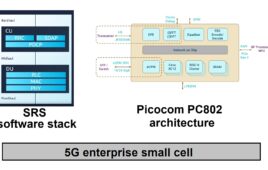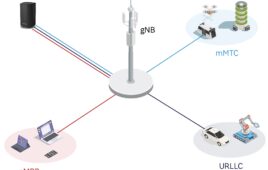Verizon isn’t working furiously on 5G just because it wants to be an industry leader, the carrier is racing toward the technology because it’s desperate, T-Mobile CFO Braxton Carter said at a Monday investor conference.
While Verizon has touted itself as leader at the forefront of 5G and has hinted at a roll out of the technology as early as next year, Carter said Verizon’s 5G frenzy is more a necessary byproduct of skyrocketing data traffic.
“Verizon continues to see massive increases in data consumption on their network, primarily driven by video,” Carter said. “(Moving to 5G is) something they have to do.”
However, Carter said a pre-standard roll out could hurt Verizon just as much as it helps.
“I think Verizon’s been the most vocal, ‘This is more shorter term for us,’” Carter said. “How Verizon is accomplishing that is with a non-standard implementation of 5G… but what you end up with is increased cost of going down a non-standard implementation because it’s being developed only for you, and you don’t get that global leverage of a standard implementation.”
“The other issue is if you do a non-standard implementation and you want to pivot to a standard implementation, you’re going to do a rip-out and replacement of that additional technology,” he continued.
Carter noted the situation could very closely mimic the divergence of CDMA and GSM technologies in the 3G roll out, which left carriers to choose between the standardized GSM technology and the pricier CDMA.
According to Carter, T-Mobile is a little more realistic with its 5G plans. The Un-carrier, he said, is conducting field trials of components of 5G but is aiming for a roll out of its 5G technologies in an environment where there is standardized 5G in the marketplace in 2019 or 2020.
Carter’s comments on Monday afternoon echoed those made by Recon Analytics’ Roger Entner, who warned a pre-standard deployment of 5G technology would result in Verizon having to either adjust its pre-standard network installations or have vendors build specifically to their standards as they did with CDMA.
While Entner said there is currently no talk of a new schism, he said the chances of a split over 5G technologies are “small but possible” thanks to the FCC’s allowance of multiple technologies in the marketplace.
Entner has cautioned before that the current race to 5G ahead of the coming 3GPP standards is a bit premature, but noted there are certain building block technologies – like Software Defined Networking (SDN) and Network Function Virtualization (NFV) – that can safely be implemented now to give carriers a leg up on 5G.
With two more LTE standards releases headed down the pipeline before 5G, Entner said the worst thing that could happen is vendors and operators start labeling one or both of the next LTE advances as 5G when they’re really are not.



